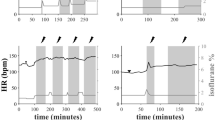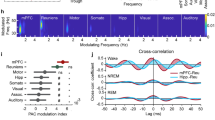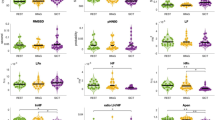Abstract
AT present no definite function can be attributed to the hippocampus. In the cat and the dog, electrical stimulation of the fimbria, the main efferent tract from the hippocampus, has been reported to give rise to no detectable autonomic changes1, although it is well known that stimulation of other components of the limbic system can elicit autonomic changes.
This is a preview of subscription content, access via your institution
Access options
Subscribe to this journal
Receive 51 print issues and online access
$199.00 per year
only $3.90 per issue
Buy this article
- Purchase on Springer Link
- Instant access to full article PDF
Prices may be subject to local taxes which are calculated during checkout
Similar content being viewed by others
References
Kaada, B. R., Acta Physiol. Scand., 24, Supp. 83 (1951).
Hamlyn, L. H., Stain Tech., 32, 123 (1957).
Nauta, W. J. H., J. Comp. Neurol., 104, 247 (1956).
Author information
Authors and Affiliations
Rights and permissions
About this article
Cite this article
CRAGG, B. Autonomic Functions of the Hippocampus. Nature 182, 675–676 (1958). https://doi.org/10.1038/182675a0
Issue Date:
DOI: https://doi.org/10.1038/182675a0
This article is cited by
Comments
By submitting a comment you agree to abide by our Terms and Community Guidelines. If you find something abusive or that does not comply with our terms or guidelines please flag it as inappropriate.



